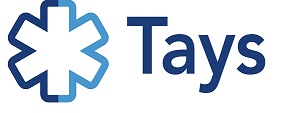Schedule
Registration deadline October 10th 13th, 2022
Kick-off October 17th, 2022
Support Clinic October 18th, 2022
Solution submission deadline November 13th, 2022
Awards Ceremony November 18th, 2022
Kick-off Program, Oct. 17th
Kick-off event is held in Tampere University Community’s event space Paidia at Nokia Arena, and in Teams. Paidia is in 3rd floor, Entrance A is the closest Arena entrance. Please see here how to get to Nokia Arena. Teams link will be sent to your email (given in the registration process) during Monday Oct 17th morning.
11:30 Doors open
12:15 Inclusive Cities Hackathon Opening – Juhani Linna, Tampere University and Roope Seppälä, Microsoft Finland. Live Teams session starts.
12:30 Key note: Inclusive, Creative, Playable – The future of our cities – Asst. Prof. Mattia Thibault, Tampere University
12:50 Challenge introductions
International House Tampere: The Atlas of Multicultural Tampere
Tays Central Hospital: Navigation information and help for Tays Central Hospital
Vapriikki: Collecting everyday communication for a new museum dealing with digital heritage
Helmet (Helsinki Metropolitan Area Libraries): A Future Library for Every Preschooler
Heureka (Science Center): Technologies for Schoolchildren’s (sustainable) Everyday Life
Efima (company): Recovery Solution for All City Residents
13:50 Break & food
14:30 Hackathon practicalities with evaluation criteria and platform introductions – Juhani Linna, Tampere University and Roope Seppälä, Microsoft Finland
15:30 Official program ends, discussion and Q&A sessions at Challenge Booths. Live Teams session ends.
20:00 Venue closes
Support Clinic Program, Oct 18th
Support Clinic is held in Tampere University Community’s event space Paidia at Nokia Arena, and partially in Teams. Paidia is in 3rd floor, Entrance A is the closest Arena entrance. Please see here how to get to Nokia Arena. Teams link will be sent to your email (given in the registration process) during Tuesday Oct 18th morning.
9:00 Doors open, Q&A booths open
11:30 Food arrives
12:00 Teams session starts – for those who want to ask from distance. On-site interaction continues.
14:00 Teams session ends.
14:30 Venue closes
Challenges
1. International House Tampere: The Atlas of Multicultural Tampere
Challenge: How to present the multicultural nature of the city to current and future residents and city service designers.
The student team would collect data on diversity and multiculturalism (language groups, nationalities, ideological/religious groups, ethnicities, etc.) in the Tampere region and visualize it on a dashboard. The idea would give a picture of where Tampere is at the moment and where it’s going when it comes to multiculturalism. An added feature could be a way/tool for that website’s visitors to provide qualitative data on how is it like to live in Tampere as a foreigner and how they experience arriving and settling into Tampere. This data could be used in supporting the development of public newcomer & settlement services.
2. Tays Central Hospital: Navigation information and help for Tays Central Hospital
Challenge: How to help people with different backgrounds navigate in Tays Central Hospital – i.e. how help them to be in the right place at the right time.
The student team would create an informational solution for the Tays staff, where the discrepancy between customer’s actual self-registration locations and desired ones would be visualized and quantified. Additionally, the student team can create or suggest ways to improve the situation.
3. Vapriikki: Collecting everyday communication for a new museum dealing with digital heritage
Challenge: How to collect representative data about personal communication and media history for the new museum.
The student team would find a user-friendly and accessible way to collect data from different people relating to their personal communication and media history. Ideally, the collected data should represent the population of Finland as a whole without any biases. Thus, the collection method should enable and encourage people with various backgrounds to use it.
4. Helmet (Helsinki Metropolitan Area Libraries): A Future Library for Every Preschooler
Challenge: How to make libraries engaging and accessible for preschoolers from diverse cultural, social and linguistic backgrounds.
The student team would analyze data from Helmet and from other sources, and utilize the results in designing engaging and accessible library services for preschoolers. Collecting and analysis would be done e.g. by using low-code tools, and results would be communicated as e.g. visualizations, demonstrators or apps. The special focus would be on children with non-native backgrounds.
5. Heureka (Science Center): Technologies for Schoolchildren’s (sustainable) Everyday Life
Challenge: How to involve, inspire and engage schoolchildren in technology development and technology education
The student team would analyze data from Heureka and other sources, and develop service-examples for schoolchildren to utilize in their everyday life. Collecting and analysis would be done e.g. by using low-code tools, and results would be communicated as e.g. visualizations, demonstrators or apps.

6. Efima (company): Recovery Solution for All City Residents
Challenge: How technology could facilitate the recovery of all city residents.
The student team would consider how technology could facilitate the recovery of all city residents. Recovery plays a significant role in personal well-being. Amid constant change and uncertainty, people are forced to work under repeated pressure and sometimes in very complex environments. Without proper recovery, the mind and body could be easily overloaded. Unfortunately, the importance of recovery is often understood too late.
In the solution, students can make use of, for example, the offered low-code tools and services.
Evaluation Criteria
After the submission deadline (Nov 13th), all submissions will be reviewed by juries consisting of Challenge Partner and Microsoft representatives. The juries award points in under these four statements:
1) The solution meets the challenge requirements (max 5 points)
2) The solution addresses right target groups (max 5 points)
3) The solution is novel (max 5 points)
4) The solution utilizes Microsoft’s tools in exemplary way (max 5 points)
Maximum score is 20. Monetary prizes will be given to all Challenge winners. Amount of money will depend on the quality of the submission – i.e. higher points, higher payout.





